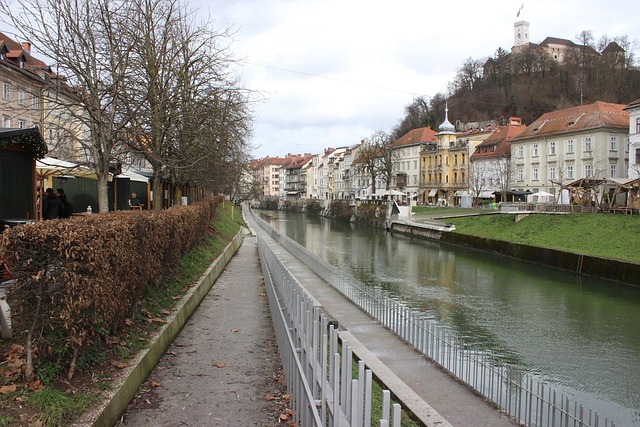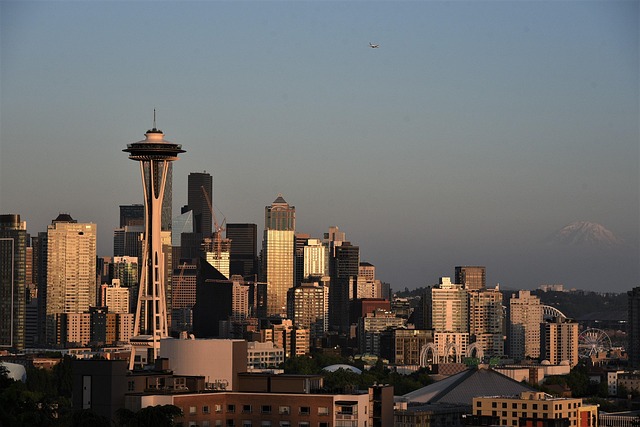Karachi's North Nazimabad struggles with waste management due to urbanization and dense population, posing health and environmental risks. The local administration is implementing a multi-faceted strategy including modern equipment, segregation practices, advanced landfill sites, and recycling centers to create a cleaner environment. Community engagement has transformed waste management, leading to significant cleanliness improvements. Future plans should expand community programs and integrate innovative solutions like smart waste systems, composting, and eco-friendly products to further enhance the neighborhood's sustainability and promote environmental responsibility in Karachi.
Karachi, Pakistan’s vibrant metropolis, faces unique waste management challenges in areas like North Nazimabad. This introduction explores the complex landscape of solid waste disposal, highlighting the pressing needs and potential solutions. From understanding the current state of infrastructure to examining community involvement, we delve into strategies for a greener future. By analyzing successful initiatives and leveraging technological advancements, Karachi can strive towards becoming a cleaner, more sustainable city. Join us as we navigate the path toward efficient waste management in North Nazimabad and its broader impact on the megacity.
- Understanding Waste Management Challenges in Karachi's North Nazimabad
- Current Initiatives and Infrastructure for Effective Waste Disposal
- Community Engagement and Future Strategies for a Greener North Nazimabad
Understanding Waste Management Challenges in Karachi's North Nazimabad

Karachi, a vibrant and bustling metropolis, faces unique challenges when it comes to waste management in areas like North Nazimabad. The rapid urbanization and growing population have led to an increase in solid waste generation, posing significant environmental and health risks. Navigating the complex landscape of waste disposal in Karachi requires a deep understanding of the local context.
North Nazimabad, with its dense population and limited infrastructure, struggles with inadequate sanitation and poorly managed waste streams. The main issues include illegal dumping sites, lack of efficient collection systems, and insufficient recycling facilities. These challenges are exacerbated by cultural practices, limited government resources, and a need for community engagement to promote responsible waste management behaviors.
Current Initiatives and Infrastructure for Effective Waste Disposal

In Karachi, especially in areas like North Nazimabad, current initiatives for effective waste management involve a multi-faceted approach. The local administration has been actively implementing strategies to enhance collection and disposal systems, focusing on both efficiency and environmental sustainability. This includes the introduction of modern waste collection vehicles capable of navigating dense urban areas, ensuring regular pickup schedules, and promoting segregation at source to reduce the amount of mixed waste.
The infrastructure for waste disposal has also seen significant upgrades. New landfill sites are being developed with advanced technology to manage leachate and gas emissions, while recycling centers have been established to process and repurpose various types of waste materials. These initiatives, combined with public awareness campaigns, aim to create a cleaner and healthier environment for the residents of North Nazimabad and the broader Karachi metropolitan area.
Community Engagement and Future Strategies for a Greener North Nazimabad

The community engagement in North Nazimabad, Karachi, has been pivotal in transforming waste management practices. Local initiatives and awareness campaigns have played a crucial role in encouraging residents to participate actively in recycling and proper waste disposal. Through workshops, educational programs, and community clean-up drives, folks are now more conscious of their environmental impact. This collaborative effort has led to significant improvements in the area’s cleanliness and sustainability.
Looking ahead, future strategies should focus on expanding these community-driven programs and integrating innovative solutions. Implementing smart waste management systems, promoting composting initiatives, and encouraging the use of eco-friendly products can further enhance North Nazimabad’s green credentials. By fostering a culture of environmental stewardship, the community can ensure a cleaner, healthier, and more sustainable future for all residents in this vibrant Karachi neighborhood.
The journey towards efficient waste management in Karachi’s North Nazimabad is already yielding positive results, thanks to current initiatives and community engagement. However, as highlighted throughout this article, challenges remain, particularly in terms of infrastructure and education. By continuing to promote sustainable practices and involving local residents actively in waste segregation and disposal, the future looks brighter for a greener North Nazimabad. In light of these efforts, it’s crucial that all stakeholders remain committed to preserving the environment and ensuring a cleaner, healthier Karachi.
